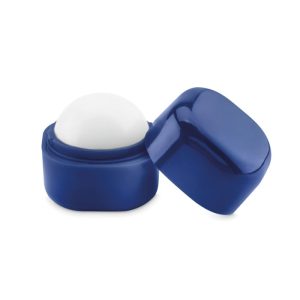
How to Do Market Research in Malta: A Practical Guide for Small Businesses
Market research sounds intimidating when you first hear the term, especially for small businesses in Malta. Many people think it requires large budgets, formal studies, or agencies charging thousands. In reality, good market research is simply a structured way of understanding your customers, your competitors, and the gaps in your market. And because Malta is a small, tightly connected country, you can often gather insights faster and with far less effort than businesses in larger markets.
This guide walks you through practical steps that work specifically for Maltese businesses, supported by global tools and real data sources you can trust.
How to Do Market Research in Malta (Step-By-Step Approach)
Understand What People in Malta Are Actively Searching For
One of the easiest and most reliable starting points is to understand what Maltese people are already looking for online. Google provides free tools that show real search trends.
Google Trends allows you to set the location to Malta and compare interest in topics over time.
You can access it here: https://trends.google.com
While the tool doesn’t give exact numbers, it gives clear directional patterns. For example, global data (“Search popularity for Gift Ideas spikes every November and December”) also holds true in Malta, even though the volume is smaller. If you run a business in retail, catering, events, fitness, fashion, education, or services, these insights help you plan your marketing and product demand.
For more precise numbers, Google Keyword Planner (https://ads.google.com/home/tools/keyword-planner/) can be set to Malta to show real monthly search volumes. This tool is especially helpful if you want to validate demand for new categories, understand seasonality, or see how competitive a market is. If you’re considering launching a new product or service, Keyword Planner will tell you exactly how many Maltese users search for related terms.
These tools are free, reliable, and widely used by marketers worldwide. They give you foundational data without needing an agency or large budget.
Look at Competitors, Both Locally and Internationally
In Malta, competitive analysis is easier than in larger countries due to the close-knit market and high visibility of business activity. Most competitors operate openly on social media, making it simple to observe what they focus on and how customers respond.
One of the most useful free tools is the Meta (Facebook) Ads Library, available here:
https://www.facebook.com/ads/library/
This tool allows you to see every active ad your competitors are running, including the creatives, messages, and call-to-actions. This is valuable because ads provide honest insight into what a business is prioritising, whether it’s discounts, new products, seasonal offers, or a specific customer segment.
Another reliable tool is Google Maps. You can look up local competitors, read customer reviews, and analyse recurring themes. Reviews are a form of organic market research. When you notice repeated praise or common complaints, these patterns reveal what matters most to customers in your industry.
If you work in an industry where global competitors influence trends, such as hospitality, e-commerce, fitness, or tourism, you can also analyse large players through Similarweb (https://similarweb.com) or Semrush’s Traffic Analytics. These tools provide estimated traffic sources and audience behaviour. You don’t need to rely on the numbers alone; what matters is understanding the direction: where competitors get traffic, what content they produce, and how they attract customers.
Talk to Real Customers — Malta Makes This Easier Than Anywhere Else
One advantage of doing business in Malta is that customer conversations are naturally easier. Maltese buyers often prefer direct communication, whether through WhatsApp, Messenger, in-store conversations, or email. These interactions are a rich source of insight.
Instead of formal surveys, simply asking customers a few targeted questions can instantly clarify what people value:
- What made you choose us?
- Was there anything that almost stopped you from buying?
- What other options did you consider?
- What would make this service or product even better?
These answers often reveal more actionable information than a structured survey. Because Malta’s market is small, even ten conversations can highlight strong patterns.
If you want something more structured, tools like Google Forms (https://forms.google.com) or SurveyMonkey (https://surveymonkey.com) allow you to send quick surveys. Larger global companies use them everywhere, and they work perfectly well for Maltese audiences. Even a small response group can be enough for directional insight.
Observe Behaviour, Not Just Opinions
One of the most reliable forms of market research is simply paying attention to what customers actually do. Opinions are useful, but behaviour shows the truth.
Look at:
- which products sell repeatedly
- which services clients ask about most
- which posts get high engagement
- which bookings come without discounts
- which offerings get ignored
These patterns provide insights into demand, price tolerance, and customer preferences without needing any research agency.
Tools like Google Analytics 4 (https://analytics.google.com) give real behavioural data that is fully applicable to Malta, including:
- most visited pages
- top exit pages
- search terms used inside your site
- location of users (you can see “Malta” clearly)
- device usage patterns
GA4 is used globally, but the data becomes local when you filter by Malta.
Test Ideas Before Committing
In a small country like Malta, testing before scaling is not just smart—it’s essential. The population is limited, so mistakes are expensive. Instead of launching a full product or campaign, test small.
You can test:
- a small batch of products
- a temporary service for one week
- a new price point
- a new menu item
- a new design
- a new offer
- a new ad creative with a €5 daily budget
Testing helps you avoid unnecessary costs and lets you see what the market responds to. Small iterative improvements often outperform big risky decisions.
Use Reliable Global Tools to Validate Ideas
If you want deeper insights, here are trustworthy global tools widely used in Europe and perfectly suitable for Maltese businesses:
- AnswerThePublic for question-based searches: https://answerthepublic.com
- Google Consumer Barometer (Archived but still useful): https://consumerbarometer.withgoogle.com
- Statista, a real data platform (free + paid): https://statista.com
- YouGov for global consumer trends: https://yougov.com
These platforms provide real data based on actual studies and often cover European markets, which tend to reflect Malta’s behaviour more closely than US data.
Turn Insights Into Action
Market research is only useful if you apply what you learn. This may mean adjusting your pricing, improving your customer experience, refining your service, or updating how you present your brand.
In Malta’s tightly connected environment, businesses that respond quickly to customer needs grow faster because word-of-mouth spreads easily, and so do impressions from social media and branded materials.
Small improvements based on real insights can have a strong impact on how customers perceive your business, how they talk about it, and whether they return.
Final Thoughts
Market research in Malta doesn’t require a large budget. It requires structure, real tools, conversations, and the willingness to observe patterns. When you combine global resources with local insights, you get a balanced view of how people make decisions in Malta and how you can serve them better.
Other Posts
-
 23 Nov 2025 Business & MarketingTop 6 Conference Venues in Malta
23 Nov 2025 Business & MarketingTop 6 Conference Venues in Malta -
 23 Nov 2025 Business & MarketingDigital Marketing in Malta
23 Nov 2025 Business & MarketingDigital Marketing in Malta -
 23 Nov 2025 Business & MarketingSocial Media Marketing Malta
23 Nov 2025 Business & MarketingSocial Media Marketing Malta -
 21 Nov 2025 Promotional Merchandise InformationHow Much Does a Branded Mug Really Cost Per Impression?
21 Nov 2025 Promotional Merchandise InformationHow Much Does a Branded Mug Really Cost Per Impression? -
 15 Nov 2025 0How to Do Market Research in Malta
15 Nov 2025 0How to Do Market Research in Malta
Products
LIPS – Lip balm in cube box
SOUND – Tritan Renew™ bottle 800ml
BOUGIE – Christmas candle holder
KOROVIN – 15″ soft PU laptop backpack
€0.00HAARLEM – 21 inch foldable umbrella
© 2025 Custom Island Gifts. All rights reserved.














